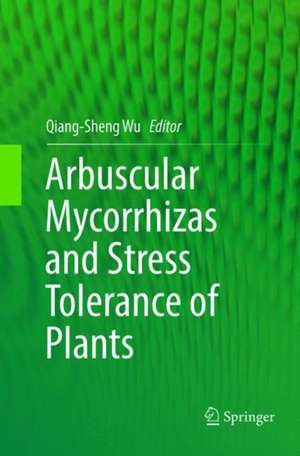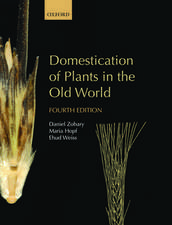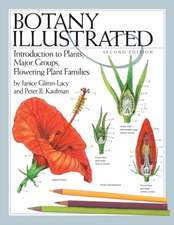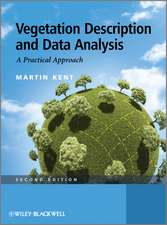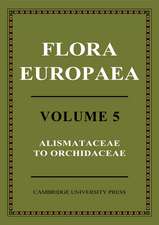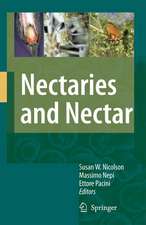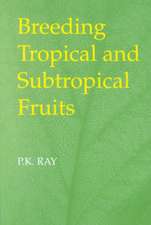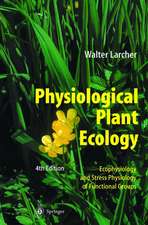Arbuscular Mycorrhizas and Stress Tolerance of Plants
Editat de Qiang-Sheng Wuen Limba Engleză Paperback – 12 dec 2018
| Toate formatele și edițiile | Preț | Express |
|---|---|---|
| Paperback (1) | 787.34 lei 38-44 zile | |
| Springer Nature Singapore – 12 dec 2018 | 787.34 lei 38-44 zile | |
| Hardback (1) | 956.33 lei 3-5 săpt. | |
| Springer Nature Singapore – 18 apr 2017 | 956.33 lei 3-5 săpt. |
Preț: 787.34 lei
Preț vechi: 1035.98 lei
-24% Nou
Puncte Express: 1181
Preț estimativ în valută:
150.66€ • 157.70$ • 125.39£
150.66€ • 157.70$ • 125.39£
Carte tipărită la comandă
Livrare economică 27 martie-02 aprilie
Preluare comenzi: 021 569.72.76
Specificații
ISBN-13: 9789811350528
ISBN-10: 9811350523
Pagini: 327
Ilustrații: X, 327 p. 24 illus., 20 illus. in color.
Dimensiuni: 155 x 235 mm
Ediția:Softcover reprint of the original 1st ed. 2017
Editura: Springer Nature Singapore
Colecția Springer
Locul publicării:Singapore, Singapore
ISBN-10: 9811350523
Pagini: 327
Ilustrații: X, 327 p. 24 illus., 20 illus. in color.
Dimensiuni: 155 x 235 mm
Ediția:Softcover reprint of the original 1st ed. 2017
Editura: Springer Nature Singapore
Colecția Springer
Locul publicării:Singapore, Singapore
Cuprins
Chapter 1 Arbuscular Mycorrhizas: An Overview.- Chapter 2 Arbuscular Mycorrhizal Fungi and Tolerance of Drought Stress in Plants.- Chapter 3 Arbuscular Mycorrhizal Fungi and Tolerance of Waterlogging Stress in Plants.- Chapter 4 Arbuscular Mycorrhizal Fungi and Tolerance of Salt Stress in Plants.- Chapter 5 Arbuscular Mycorrhizal Fungi and Tolerance of P Stress in Plants.- Chapter 6 Arbuscular Mycorrhizal Fungi and Tolerance of Fe Stress in Plants.- Chapter 7 Arbuscular Mycorrhizal Fungi and Tolerance of Zn Stress in Plants.- Chapter 8 Arbuscular Mycorrhizal Fungi and Heavy Metal Tolerance in Plants.- Chapter 9 Arbuscular Mycorrhizal Fungi and Tolerance of Temperature stress in Plants.- Chapter.10 Roles of Arbuscular Mycorrhizal Fungi in Protecting against Plant/soil Pathogens.- Chapter 11 Arbuscular Mycorrhizas and Reactive OxygenSpecies.- Chapter 12 Arbuscular Mycorrhizas and Ecosystem Restoration.- Chapter 13 Application of Arbuscular Mycorrhizal Fungi into Agriculture.
Notă biografică
Qiang-Sheng Wu is a professor at the College of Horticulture and Gardening, Yangtze University and an administrative direction at the Institute of Root Biology, Yangtze University. He also serves as the invited professor in the Department of Chemistry, Faculty of Science, University of Hradec Kralove.
His research interest is primarily in the signalling communication by common mycorrhizal network, the functioning and evaluation of glomalin-related soil protein, the physiol-molecular mechanisms about mycorrhiza-enhanced tolerance of drought stress and salt stress, and the relationship between mycorrhizas and root morphology or root hairs in plants, especially citrus plants.
He has published 70 papers as the first author or corresponding author indexed by SCI data and completed work on the book titled “Arbuscular Mycorrhizal Research and Application of Horticultural Plants” by Science Press. He serves as the invited editors to review manuscripts from ~20 popular journals. He has also been awarded the Fourth SCOPUS Young Research Award.
His research interest is primarily in the signalling communication by common mycorrhizal network, the functioning and evaluation of glomalin-related soil protein, the physiol-molecular mechanisms about mycorrhiza-enhanced tolerance of drought stress and salt stress, and the relationship between mycorrhizas and root morphology or root hairs in plants, especially citrus plants.
He has published 70 papers as the first author or corresponding author indexed by SCI data and completed work on the book titled “Arbuscular Mycorrhizal Research and Application of Horticultural Plants” by Science Press. He serves as the invited editors to review manuscripts from ~20 popular journals. He has also been awarded the Fourth SCOPUS Young Research Award.
Textul de pe ultima copertă
This book reviews the potential mechanisms in arbuscular mycorrhizas (AMs), in the hope that this can help arbuscular mycorrhizal fungi (AMF) to be more used efficiently as a biostimulant to enhance stress tolerance in the host plants. AMF, as well as plants, are often exposed to all or many of the abiotic and biotic stresses, including extreme temperatures, pH, drought, water-logging, toxic metals and soil pathogens. Studies have indicated a quick response to these stresses involving several mechanisms, such as root morphological modification, reactive oxygen species change, osmotic adjustment, direct absorption of water by extraradical hyphae, up-regulated expression of relevant stressed genes, glomalin-related soil protein release, etc. The underlying complex, multi-dimensional strategy is involved in morphological, physiological, biochemical, and molecular processes. The AMF responses are often associated with homeostatic regulation of the internal and externalenvironment, and are therefore critical for plant health, survival and restoration in native ecosystems and good soil structure.
Caracteristici
Reviews the potential mechanisms in arbuscular mycorrhizas. Introduces the application of arbuscular mycorrhizal fungi in agriculture. Explores the more efficient use of arbuscular mycorrhizal fungimore as a biostimulant to enhance stress tolerance in the host plants.
